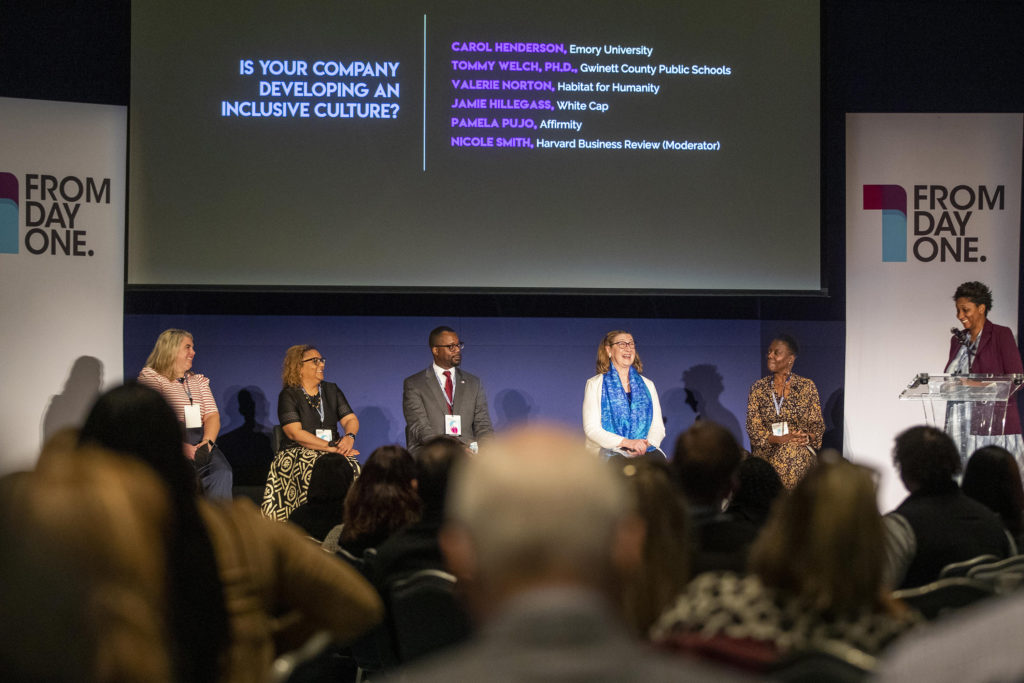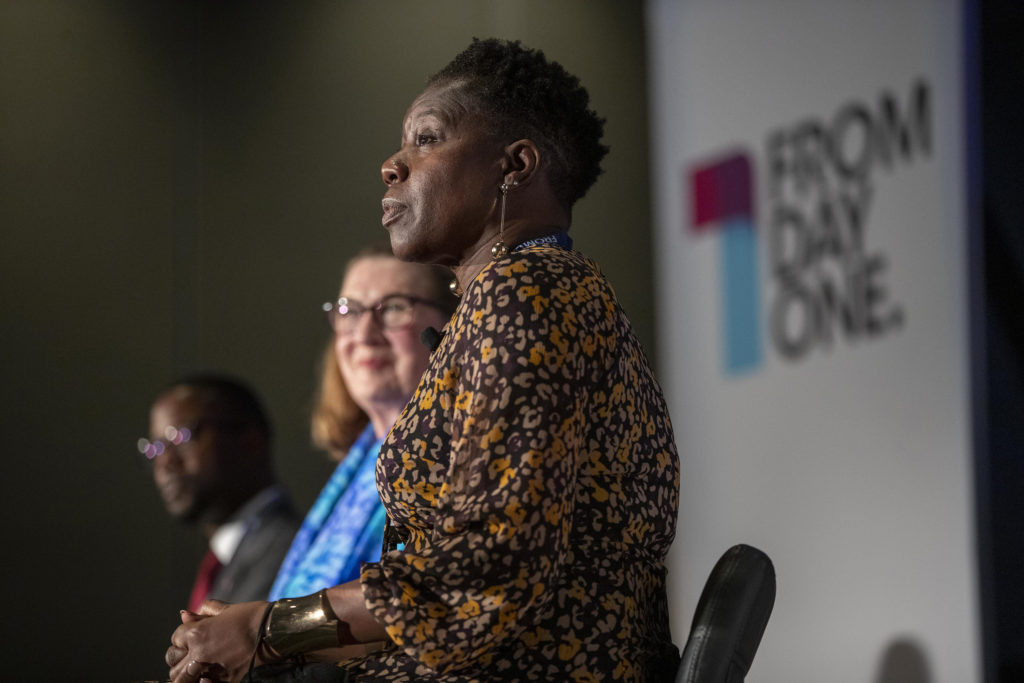Inclusive Culture: ‘We Have to Have Rules of Engagement’


When we think about a career, we are not simply thinking about wages, projects, and staff meetings. Our society has moved away from “clock-in” culture and rigid formalities. When we go to work, we want to be recognized and appreciated not only for our talents, but we also want to be engaged in an environment that is reflective of our lived realities. No one wants to go to the office being the “only.” Work is more than just making a living–when folks go to work, they want to be heard, they want their ideas to be taken seriously. In 2022, companies need to meet the expectations of an increasingly diverse workforce.
In a panel moderated by Nicole Smith, the editorial audience director for Harvard Business Review, experts across several fields gathered at From Day One’s Atlanta conference to discuss ideas, agendas, priorities, and “what works” in diversity, equity and inclusion (DEI). To begin with, how do we define inclusion? It’s become an overused buzzword in a lot of spaces, to the point of futility and semantic satiation.
“Inclusion is about engagement, but not just engagement. Engagement with a sense of belonging, self-worth, full inclusion, being able to bring your entire self to work with you,” said Tommy Welch, PhD, chief equity and compliance officer for Gwinnett County Public Schools. He emphasized the importance of creating spaces where marginalized voices are elevated and are included in measurement tools to assess how to improve inclusionary practices in the workplace.
The panel drew a clear distinction between inclusion and diversity. Though often regarded as synonyms, these words have entirely different definitions. As Valerie Norton, chief people officer for Habitat for Humanity, explained, “The measures are really different. So diversity, it's real. You can count it quantitatively and through employee surveys and other mechanisms that give you feedback, you can tell if people feel included. I heard a wonderful description the other day: we often say people feel included when they feel welcomed, but it’s when they feel expected.”

What happens when we cannot always have teammates who value the importance of DEI initiatives? From the surface, it would seem that understanding the power of a diverse workforce is axiomatic, however DEI professionals have to be prepared to engage with employees who are skeptics. Jamie Hillegass, director of talent, development and learning at the building-supply company White Cap, laid down the ground rules: “Some of our leaders are trying to dismantle systemic racism, right? And some of them are very new to the terminology. And so we meet with each of them, we coach them, we find them on their journey. When you do have some of those leaders that won’t get on the bus, then we have to find employment for them elsewhere. We believe from the leadership down, we have to get everyone moving in the same direction, even if they are maybe on different parts of the journey.”
Finding mutual understanding is one of the keys to strategic alignment. Carol Henderson, PhD, chief diversity officer and vice provost for diversity and inclusion at Emory University, spoke of ways to initiate understanding of DEI as a community benefit, as opposed to a burden: “I find that people are threatened by inclusiveness, because they’re fearful that something’s going to be taken away from them, or that they will be excluded or blamed for something. We have to have rules of engagement. At Emory, our mission is to create, teach, preserve and apply knowledge in the service of humanity. So if that’s our mission, my comment or question to the individual that doesn't want to engage is ‘Give me your explanation of how you will live out our mission.’ And then maybe we can start from there.”

It is evident that businesses cannot move forward without strategic DEI initiatives, and the organizations that create a sense of belonging are those that value inclusivity. Pamela Pujo, diversity advocate at Affirmity, which offers DEI training, explained how DEI impacts the bottom line: “You want to have inclusion in your work environment, because you’ve gone through the process of hiring great talent. Do you want to keep hiring talent so it starts to impact the cost of recruitment, lose productivity because you’re constantly training new employees, or lose employees who are there and they don’t feel included? You’re really impacting and hurting your business, not only with your products and services, but with your culture and your environment. Having that inclusive environment, when you bring in that diverse talent, they’re more likely to stay. They will feel like they belong. They have that sense of value within the organization.”
Emory’s Henderson concluded, “I’ve looked at DEI as a journey, not a destination. And because of that, you win in small steps. I got into the game because someone paid it forward for me. If you give people the tools, they will utilize those and do amazing things.”
Nzingha Hall is a journalist, public speaker, and DEI facilitator in Atlanta, Ga.
The From Day One Newsletter is a monthly roundup of articles, features, and editorials on innovative ways for companies to forge stronger relationships with their employees, customers, and communities.